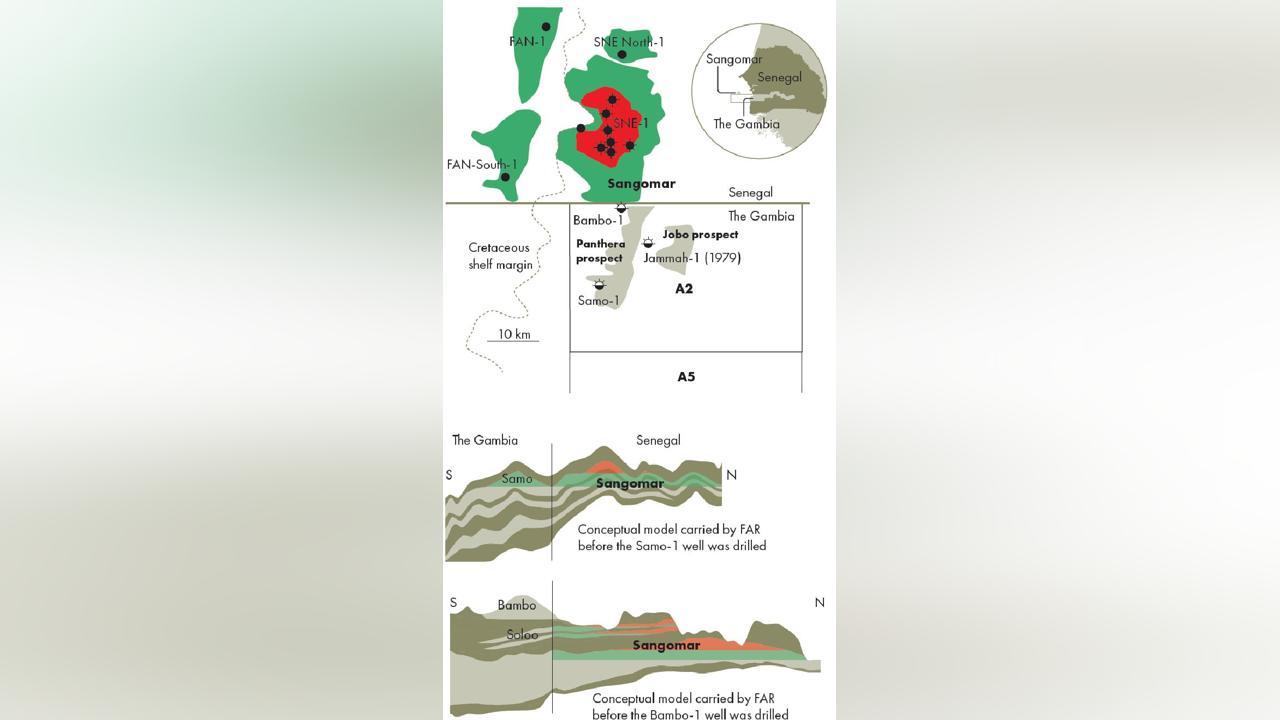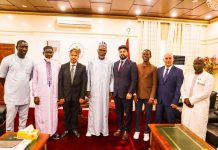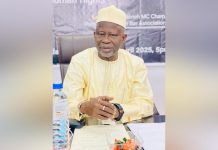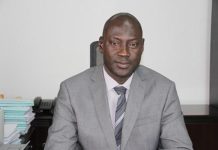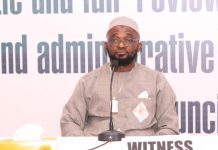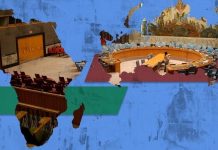By Lt. Col. Samsudeen Sarr Rtd
Africa-Press – Gambia. In the year 2020, amid the din of political realignments and post-regime recalibrations, former US Navy captain, Ebou Jallow, emerged to deliver a sobering message in a video primarily delivered in Wolof. He warned that The Gambia’s offshore oil and gas reserves — once lauded by former President Yahya Jammeh as being of immense commercial value — had possibly been misappropriated or clandestinely ceded to Senegal under the administration of President Macky Sall.
Jallow’s message, at the time, was derided by many in the Gambian intelligentsia. He was swiftly written off as a nostalgic Jammeh loyalist or a bitter critic of the coalition government that ousted the long-time ruler in 2016. The irony is striking that those same voices that once scoffed at his claims have now shifted — however subtly — toward validating his initial suspicions.
Fast forward to the present, and the allegations Captain Jallow made, once branded as the ramblings of a malcontent, are finding renewed currency. A recent investigative revelation published by The Fatu Network, has injected fresh urgency into the debate. Drawing from research conducted by a London-based team, which includes renowned international asset recovery attorney Mr Ousman F M’Bai, the report paints a disconcerting picture that FAR Ltd, the firm entrusted with managing The Gambia’s oil and gas exploration in the shared Senegalese-Gambian offshore basin, may have grossly mismanaged its responsibilities — if not altogether compromised The Gambia’s interests.
At the heart of the matter lies a glaring conflict of interest. FAR Ltd, while under contract to explore The Gambia’s A2 and A5 offshore blocks, simultaneously held substantial stakes in Senegal’s lucrative SNE Sangomar oil field. This dual allegiance — at once financial and strategic — raises urgent questions about whose interests the company was ultimately serving. Was The Gambia merely a stepping stone toward bolstering Senegal’s already burgeoning oil portfolio?
The critique has not been confined to civil society and media circles. Lawyer Essa Faal, leader of the Sobeya Party, has echoed similar sentiments. He has openly condemned the manner in which The Gambia’s exploration process was handled, alleging that procedural irregularities, obscure dealings, and strategic negligence effectively sidelined The Gambia from benefiting — despite sharing a contiguous geological formation with Senegal’s productive fields.
Yet, as of today, there is no incontrovertible evidence to confirm a covert transfer or outright theft of The Gambia’s oil blocks. What does exist, however, is a worrying confluence of negligence, non-transparency, and possibly complicit silence. The exploration of the Bambo-1 well by FAR Ltd was abruptly halted and declared “non-commercial” — a verdict reached without the release of critical geological data for independent review. This deliberate withholding of information has only served to deepen public mistrust.
FAR Ltd’s sudden exit from The Gambia, cloaked in bureaucratic vagueness and contractual ambiguity, has added fuel to the fire. How could a nation so strategically poised for energy transformation allow itself to be hoodwinked — or worse, betrayed — by those entrusted with shepherding its natural resources?
However, the political winds have shifted. With the election of President Bassirou Diomaye Faye in Senegal, a glimmer of hope emerges. In contrast to his predecessor, President Faye has voiced a firm commitment to re-examining and renegotiating extractive industry contracts. He has castigated previous agreements for disproportionately enriching foreign companies at Senegal’s expense — a critique that, if applied with consistency, could extend a diplomatic olive branch to The Gambia.
Nevertheless, caution must temper our expectations. The Faye Administration inherited these murky contracts and should not be accused of wrongdoing until the facts are established. Indeed, the new Senegalese leadership has publicly embraced the philosophy of “Jubb, Jubbal, and Jubbanti” — truth, justice, and accountability. If sincere, this spirit should welcome, not resist, a transparent and jointly conducted investigation into the dealings that occurred under President Sall’s watch.
To that end, it is incumbent upon the government of The Gambia to initiate a formal bilateral inquiry into the matter. Should Senegal demur or decline to cooperate, The Gambia retains the sovereign right to engage reputable international investigators and, if warranted, escalate the matter to international legal fora. Should culpability be established, Senegal could face demands for reparations proportionate to the unjust enrichment derived from The Gambia’s forfeited share.
And finally, to restore public confidence and dispel lingering doubts, the Barrow administration must release the final report submitted by FAR Ltd. That report must disclose whether the A2 and A5 offshore blocks truly lack commercial viability or whether this narrative was strategically crafted to veil a broader agenda of resource expropriation.
In the grand scheme of national development, natural resources are more than economic assets — they are symbols of sovereignty, trust, and future promise. The Gambian people deserve full clarity on what became of their oil and gas prospects. In the spirit of pan-African solidarity and responsible governance, The Gambia and Senegal must confront this issue not as adversaries, but as partners committed to justice, transparency, and mutual progress.
For More News And Analysis About Gambia Follow Africa-Press

